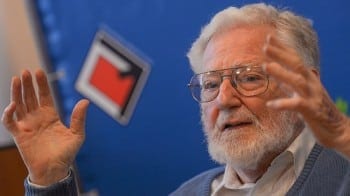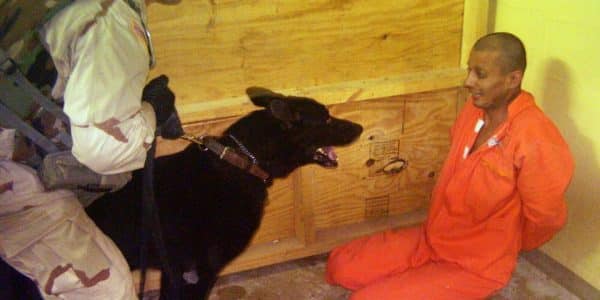By GARY LEUPP


[dropcap]A[/dropcap] week ago, after meeting Russian Foreign Minister Sergey Lavrov in Geneva, U.S. Secretary of State John Kerry announced that the two sides had made progress on the matter of coordination and intelligence sharing in the air war against al-Nusra (now re-dubbed Fatah al-Sham) and ISIL in Syria.
Meanwhile President Obama (at least since last December) has backed off on his insistence—urgent in 2011, when he was advised by Hillary Clinton as secretary of state—that Syria’s President Bashar al-Assad surrender power. This demand has weakened over time as Assad has stubbornly clung to power, as the (largely Sunni) national army has performed unexpectedly well against U.S.-backed armed rebels, and as Russia has belatedly intervened on behalf of the regime (or, as Moscow sees it, the modern, secular Syrian state itself).
An announcement is supposed to occur in “early August.” We’re there now, but no announcement yet. Events in Aleppo may affect its timing, or rule it out. The Syrian Arab Army has encircled Aleppo, Syria’s largest city largely held by al-Nusra and its allies, and is poised to close in. Last Tuesday the Syrian government announced that it was providing safe passage for residents to leave the city, and Russia announced specific plans to provide corridors both for civilians wanting to leave and fighters willing to turn over their arms.
U.S. Ambassador to the UN Samantha Powers immediately pronounced the plan “chilling” (because it “warns Syrians to leave E Aleppo & entrust lives to gov that’s bombed & starved them”). That is to say, Powers used the news of the immanent defeat of a long-time al-Qaeda affiliate regarded by both the U.S. and Russia as terrorist, as an opportunity to further trash Assad and Russia. (And she doesn’t seem to recall this evacuation plan was precisely the strategy used by the U.S. in Fallujah and elsewhere in its uninvited military adventures.)
Powers rules out the possibility that the national army might meet with a warm welcome from the people of Aleppo, historically a Baath Party power base. Kerry meanwhile intimates that this new development might jeopardize planned cooperation in Syria against al-Nusra/Fatah al-Sham and ISIL.
Mixed Signals All Along
[dropcap]T[/dropcap]here are mixed signals here. But there have been all along. During the George W. Bush administration, neocon officials plotted the downfall of the Assad regime. On the other hand, Secretary of State Colin Powell met with Assad in 2003 and diplomatic relations were restored after 24 years in 2006.
Hillary Clinton as of 2009 was praising Assad as a “reformer,” but in 2011 was ordering him out. In 2013 Obama was on the verge of a massive missile assault on Syria, to punish Assad for supposedly using sarin gas against his people (an unlikely prospect, since he was winning the war through conventional means). But Lavrov told Kerry that Russia believed that opposition forces were responsible. By some reports Obama soon became persuaded that Turkish intelligence in collusion with some opposition faction contrived a false flag incident hoping to induce the U.S. to topple Assad.
Kerry happened to mention at a press confidence that the U.S. would hold off attacking if Syria would give up all its WMDs. Lavrov immediately, deftly negotiated an arrangement for Syria to turn over its chemical weapons to the UN, and at the last minute Obama cancelled his planned attack.
But he did deliver an accusatory speech in which he declared the Syrian government responsible for the incident and reiterated: “I believe in American exceptionalism with every fiber of my being.” He just altered the speech’s conclusion to suggest that the Syrian decision to surrender its WMDs had changed the situation. He was still committed to regime change.
The Embarrassing U.S. Failure to Build a Syrian Proxy Force
[dropcap]S[/dropcap]tepping back a bit: in August 2011, when Obama and Clinton both demanded Assad’s departure, and closed down the U.S. embassy in Damascus, the opposition to Assad had been largely nonviolent. But armed factions were, with U.S. encouragement, already taking shape, loosely coordinating as something called the “Syrian Free Army.” They included many pro-al-Qaeda elements who officially formed the al-Nusra Front (Jabhat al-Nusra) in January 2012.
(The rule, if you haven’t noticed, is: When the U.S. overthrows a secular leader in the Middle East, or tries to, it creates a power void; it creates promised lands of opportunity for vicious jihadis, whose atrocities justify the redeployment of U.S. troops to the country involved in order to “preserve regional stability” and so forth. It is as though Washington is actively working to enrage, not only your everyday Muslim anywhere in the world, but your everyday anyone anywhere in the world, by its regime change bombing campaigns rationalized by lies.)
Al-Nusra gained widespread respect among the armed rebels in Syria in 2012. The U.S. press gave slight attention to the fact that the “Free Syrian Army” publicly justified and insisted upon its alliance with this al-Qaeda chapter.
Currently most factions (80% in one estimate) of the hundreds of Syrian Free Army factions work with al-Nusra. They value its experience and competence, even if they may dislike its puritanism in such matters as tobacco smoking and personal appearance. U.S. officials have long since realized that to topple Assad they need to—if not befriend al-Nusra directly (repeat: al-Nusra/ Fatah al-Sham was until yesterday an official al-Qaeda affiliate)—at least give their (more) directly subsidized associates leave to mingle as needed, to get the regime change job done.
By 2014, with Assad still in charge and al-Nusra coming to dominate the “opposition,” Obama asked Congress for money to fund a program for U.S. personnel to train in Jordan some 15,000 armed rebels in marksmanship, navigation and other skills. But as of September 2015, as a sheepish-faced General Lloyd Austin, commander of U.S. Central Command, told Congress, “We’re talking four or five” fighters actually trained. In that same month, it was announced that about 70 fighters of “Division 30”—Syrians trained in Turkey, under the “Syrian Trade and Equip” program, had upon entering Syria turned over their weapons to al-Nusra.
Embarrassment upon embarrassment, for the regime-changers!
The fact of the matter is, the U.S. has found it difficult, after all that’s happened in the region in this young century, to recruit Syrians willing to work with them. Blinded by their Exceptionalism, U.S. policy-makers can’t get it through their heads that U.S. actions in Afghanistan, Iraq, Yemen and Libya do not endear them to the peoples of those countries. Quite the opposite.
Russian Intervention; the U.S. Freaks Out
[dropcap]I[/dropcap]n this same crucial month (of September 2015, as U.S. weakness in the region was exposed), Russia became seriously involved in the Syrian conflict. It had watched the spread of disorder and suffering throughout the Middle East with alarm. (“Do you realize what you’ve done?” Putin soon asked the U.S. and its allies, at the UNGA, in November 2015.) Now finally it moved.
Russia had had a military pact with Syria since 1980, and operated its naval base at Tartus (its only one in the Mediterranean, compared to the U.S.’s nine ) since 1971. Moscow now announced a program of bombing terrorists in cooperation with Syrian government forces.
Taken aback, the U.S. could do little but note the obvious (that Russia was supporting a president the U.S. had commanded to step down, accusing him of crimes against his people) and complain that Russia wasn’t really targeting terrorists, but the “moderate opposition.”
“Who are you talking about?” the Russians responded politely. Lavrov proposed that Washington and Moscow agree on a list of groups considered “terrorist.” The U.S. concedes that a lot of the groups it backs work closely with al-Nusra, justifying it publicly. One of the U.S.-backed groups, Harakat Nour al-Din al-Zenki, posted a video last month of smiling members beheading a 12-year-old Palestinian boy accused of being a member of a pro-Assad group. The State Department spokesman asked the group to investigate, and it duly issued a statement terming the beheading a “mistake.”
The Russians have demanded at the UN that the Ahrar al-Sham organization, backed by Turkey and Saudi Arabia and closely aligned with what used to be called al-Nusra, be classified as a terrorist organization. These efforts have been stymied by the group’s supporters. The U.S. sees Ahrar al-Sham as part of the “moderate opposition.”
While disagreeing with the U.S. about who was a “terrorist” and who a fighter for the “moderate opposition,” Russia while targeting northwest Syria where the al-Nusra mix holds territory in a few weeks did more damage to ISIL than the U.S.-led anti-ISIL coalition (formed in December 2014) had done in nine months. (Indeed, one of the most preposterous disinformation enterprises of the U.S. press is to exaggerate U.S. “Coalition” successes against ISIL while minimizing the Russian and Syrian.)
In particular, Russian war planes destroyed thousands of Turkey-bound oil tankers striking the caliphate at its economic base. (In the process it also provided documentation, largely ignored by the U.S. press, that Erdogan was profiting from this traffic.) In May 2016 the Syrian army recaptured Palmyra with its architectural treasures from ISIL, with Russian support.

When ISIS held Palmyra it used its magnificent amphitheater to stage a mass execution—murder—of Syrian POWs. The US press barely blinked.
Kerry’s State Department was obliged to shift tactics. Here was Russia, cautiously, effectively and legally, finally asserting its power in its backyard (Aleppo is 720 miles from southern Russia, 5775 from Washington D.C.), arguing that—while Moscow is not wedded to Assad— it wants to preserve the Syrian state, which is represented by its army, currently in a life-to-death struggle with terrorists. It was receiving considerable international sympathy for its efforts. What could Kerry do but respond positively to Lavrov’s proposal for multiparty talks in Europe last year, to try to arrange a political solution between the non-terrorist parties?
Diplomacy, while Pounding the War Drums
[dropcap]A[/dropcap] series of meetings, involving a few Syrian factions, excluding many (such as the Kurdish YPG, at the insistence of Turkey), the U.S., Russia (but not Iran), produced a ceasefire agreement implemented from February 27, 2016. But it does not include ISIL and al-Nusra. Since it is spatially embedded in the other organizations, Russian and Syrian forces in attacking al-Nusra surely bomb fighters the U.S. (in its manifest wisdom) deems “moderates.”
Gosh. Has the U.S. ever done something like that?
The ceasefire has generally held, between the “moderate opposition” and the army. During this period of enforced relative passivity, al-Nusra has reportedly used the opportunity to expand ties and amass supplies, and as we’ve seen, it’s renamed itself to gain respectability. It knows there are some in the U.S. power structure advocating use of (as General Petraeus put it last year) “some elements” in al-Nusra against ISIL. It’s losing the battle and no doubt willing to cut various deals with others hostile to Assad.
The regime and its Russian patrons have apparently decided to strike now, hard, against al-Nusra in East Aleppo and reclaim the city. If they do so it will be a turning point, although not the end of the Syrian conflict. (The Kurdistan issue looms.)
Kerry like Obama seems conflicted about what to do in Syria. He wants to topple Assad, because the U.S. government has announced he must go, and once such a proclamation is issued, it cannot (like a law of the Medes and Persians) be retracted for fear of loss of face. But Kerry’s also been (like Obama, who as you recall cluelessly called ISIL a “JV team” in August 2014) shocked by the sudden rise of that horrid outgrowth of the U.S. destruction of Iraq. It would be embarrassing if ISIL takes Damascus and blows up all the ancient Christian sites. Especially if Putin and tens of millions of Russian Orthodox believers who feel akin to Syrian Orthodox Christians are standing around saying, “I told you this would happen, if you keep focusing so stupidly on Assad”).
So of course U.S. leaders have to condemn, and to some extent wage war on, ISIL as well as al-Nusra. The problem is how to pursue that objective while simultaneously maintaining that Assad is the main problem, and arguing that his very persistence in power strengthens the terrorists. It doesn’t make any sense.
In fact, the weakening of central state power encouraged by the U.S. since 2011 has allowed these groups to seize territory and advance their positions, while the reclamation of state authority when it’s happened has set back the bad guys. Or at least the worst guys.
The faction in the State Department that never learns anything and is currently demanding regime change is getting louder. The manifesto published by the 51 State Department dissidents suggests too much attention has been placed on countering ISIL. What we really need to do, they say, is step up efforts to remove Assad. Despite the weird, unprecedented nature of the dissidents’ memo leak, Kerry has pronounced himself sympathetic. Meanwhile the recent statement from the “Center for a New Security” headed by key Clinton aide and likely future Secretary of Defense Michele Flournoy similarly promotes regime change.
On July 29—the day that she secured the Democratic nomination in that sickening display of USA! USA! jingoism—Clinton’s campaign stated that she will “reset” U.S. Syrian policy as a top priority in office, to focus on toppling Assad from power. (Surprise, surprise, you fools who assumed she’d learned something from Libya.)
For all with ears to hear—and have learned anything at all since 9/11 and the inception of the era of constant wars, based on lies—the war-drums are sounding. But as MSNBC’s Chris Matthews notes, “Americans don’t care anything about foreign policy.”
One can only hope that the crazies in Syria are rolled back by rational secular forces before January, aided perhaps by welcome, coordinated foreign air power, when the Queen of Chaos comes to the throne (if so she does).
Because if she gets her chance, she will be looking for excuses to bomb Damascus.
NOTE: ALL IMAGE CAPTIONS, PULL QUOTES AND COMMENTARY BY THE EDITORS, NOT THE AUTHORS
Note to Commenters
Due to severe hacking attacks in the recent past that brought our site down for up to 11 days with considerable loss of circulation, we exercise extreme caution in the comments we publish, as the comment box has been one of the main arteries to inject malicious code. Because of that comments may not appear immediately, but rest assured that if you are a legitimate commenter your opinion will be published within 24 hours. If your comment fails to appear, and you wish to reach us directly, send us a mail at: editor@greanvillepost.com
We apologize for this inconvenience.


=SUBSCRIBE TODAY! NOTHING TO LOSE, EVERYTHING TO GAIN.=
free • safe • invaluable
If you appreciate our articles, do the right thing and let us know by subscribing. It’s free and it implies no obligation to you—ever. We just want to have a way to reach our most loyal readers on important occasions when their input is necessary. In return you get our email newsletter compiling the best of The Greanville Post several times a week.
[email-subscribers namefield=”YES” desc=”” group=”Public”]

Nauseated by the
vile corporate media?
Had enough of their lies, escapism,
omissions and relentless manipulation?
GET EVEN.
Send a donation to
The Greanville Post–or
SHARE OUR ARTICLES WIDELY!
But be sure to support YOUR media.
If you don’t, who will?
ALL CAPTIONS AND PULL-QUOTES BY THE EDITORS, NOT THE AUTHORS.

![]() For 50 years I’ve been painstakingly cataloguing the brutal militarism and human-rights violations of US foreign policy, building up in the process a very loyal audience.
For 50 years I’ve been painstakingly cataloguing the brutal militarism and human-rights violations of US foreign policy, building up in the process a very loyal audience.












 Has been writing about the Middle East for over 20 years. He is an internationally-syndicated columnist, a media consultant, an author of several books and the founder of
Has been writing about the Middle East for over 20 years. He is an internationally-syndicated columnist, a media consultant, an author of several books and the founder of 
